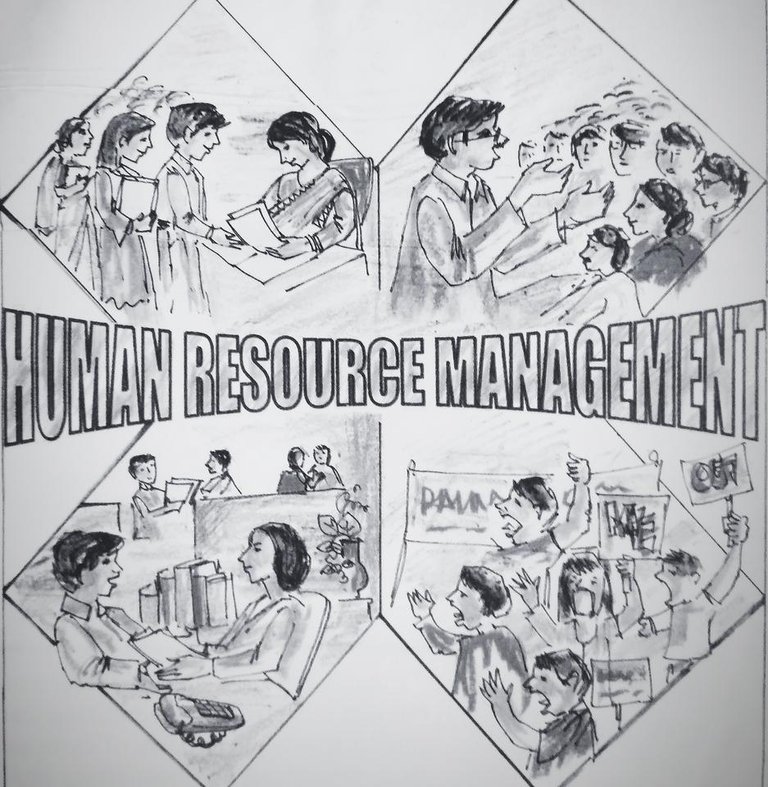HARD VERSION OF HUMAN RESOURCE MANAGEMENT
Hard approach to human resource management is a pragramatic perspective to human resource management which looks upon people as resource and measures the tangible benefits acquiring from their development. Human resources have to be acquired, developed and deployed in ways that maximize their utility. The focus is on calculateive and stretigic aspect of managing human resource and the approach is rational with regard to factors of production. The objective is 'effeciency' and the philosophy is business orientation with emphasis on tangible and quantifiable value addition in the organization. It has been stated that the drive to adopt human resource management is based on the business need to respond the external threat arising from increasing competition. It is a philosophy that appeals to management's striving hard at achieving and sustaining competitive edge and appreciate that to do it they must invest in human resource as well as they do for other practices or for other areas like procuring technology.
SOFT VERSION
The soft model of human resource management traces its origin to the human relations school of administrative thought and emphasises development of healthy organizational culture by use of effective communication, motivation and leadership as primary sources of maximizing performance. It looks upon employees as co-contributors rather than adjuncts in organizational culture, 'objects' or pieces of automation. It stresses on the need to gain sustained commitment of employees through democratic means such as participative management, meaningful involvement in policy formulation and other methods of developing high comitee, high trust culture in the organization. Attention is therefore drawn to key role of organizational behaviour.
Employees are treated as valued assets and a source of competitive advantage which needs to be optimized by evicting ethical virtues such as commitment, adaptibility and high quality performance in consonance with the collective will of organization articulated as organizational purpose. Ethics lies in reciprocity between individual member and management.
The emphasis is on the belief that the interests of management and employees are congruent. This approach is also termed as the unitary approach to human resource management.
